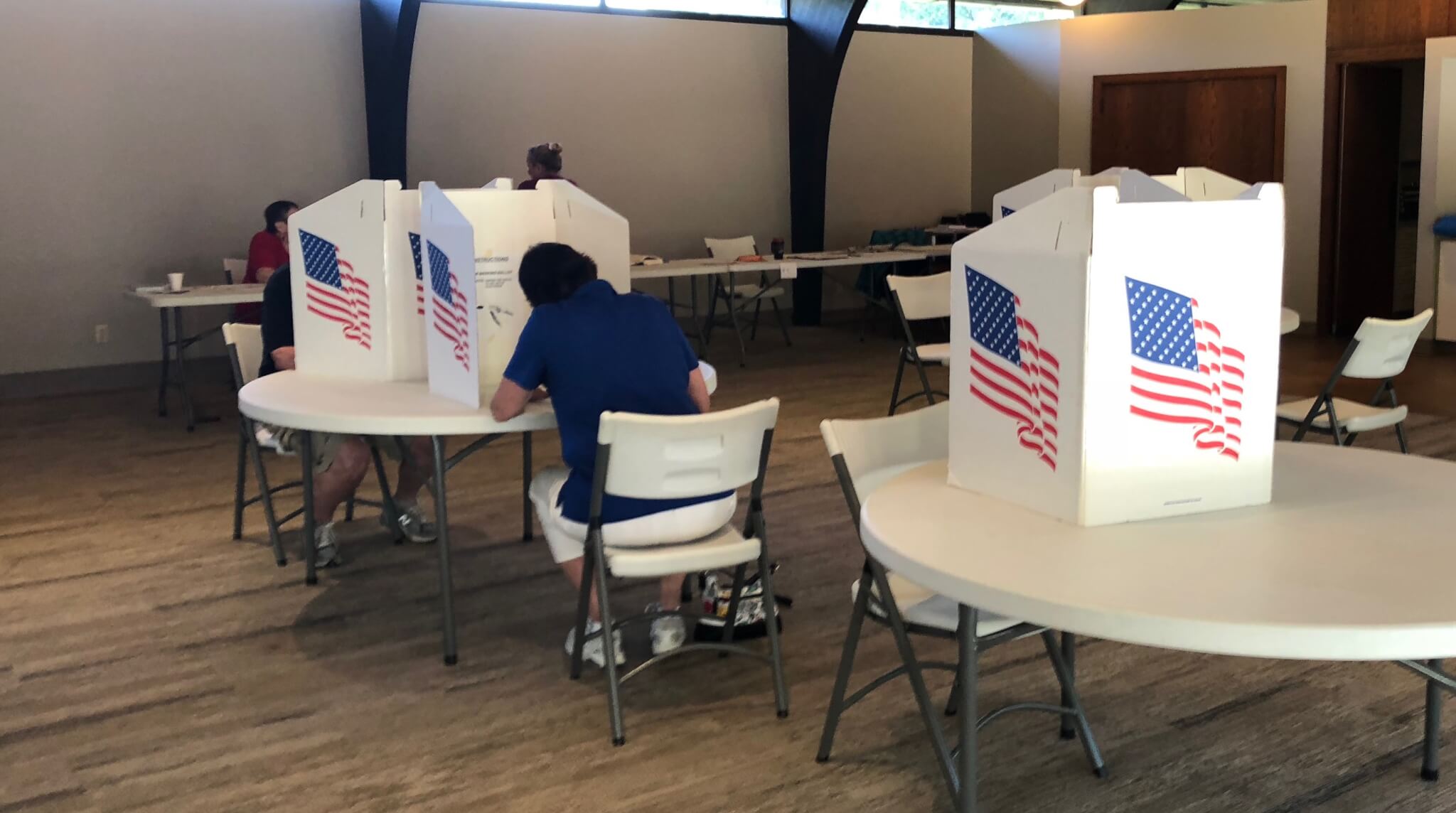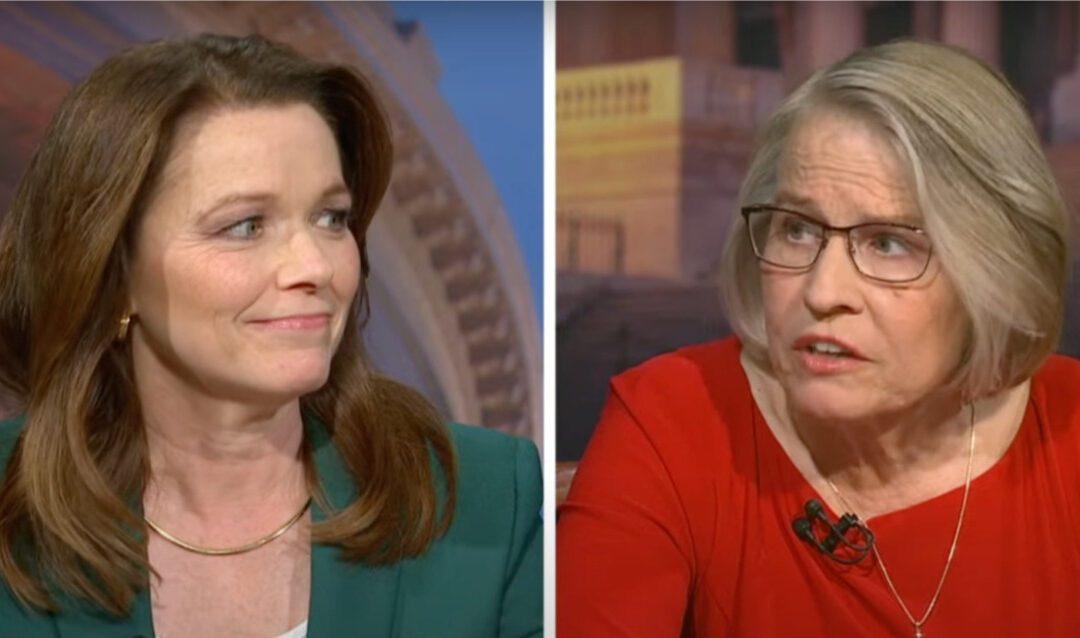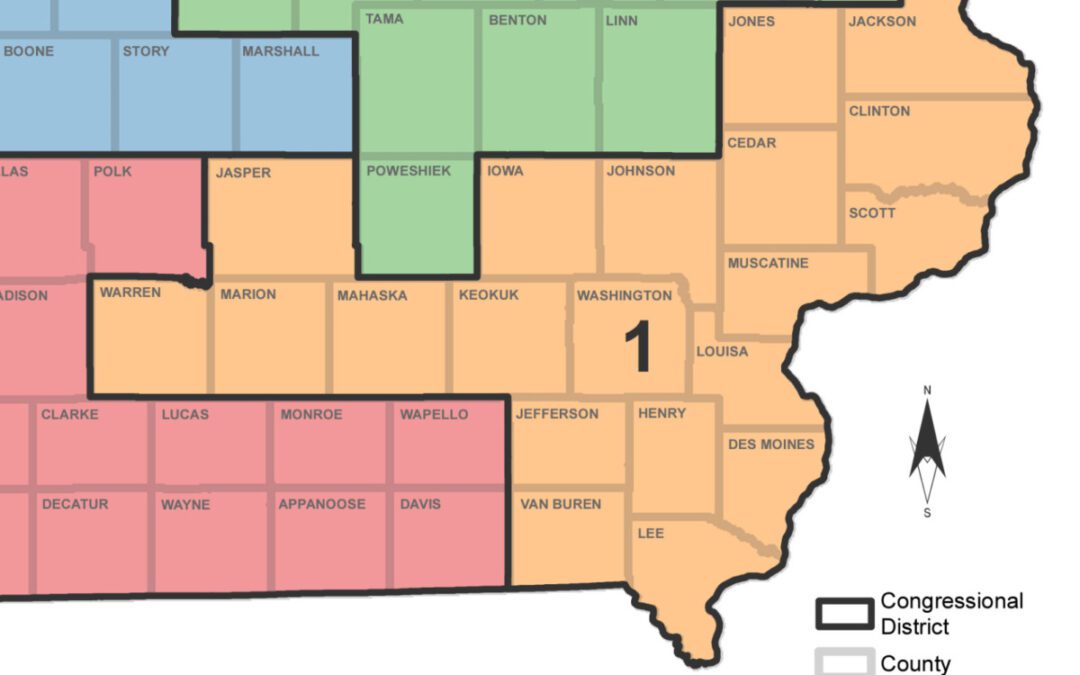
This story was originally published Nov. 4, 2019, and has been edited and updated.
While Iowa’s voter ID law may have put hurdles in the way of casting a ballot, county auditors and poll workers are still committed to helping all eligible citizens vote on Election Day.
Iowa’s voter ID law is fully rolled out, and all polling locations will require voters to show some form of ID.
What can I use for Voter ID in Iowa?
In Iowa, voters are required to provide one of the following forms of identification, according to Iowa’s Voter Ready website:
- Iowa driver’s license (not expired more than 90 days)
- Iowa non-operator ID (not expired more than 90 days)
- US passport (not expired)
- US military ID or veteran ID (not expired)
- Tribal ID card/document (must be signed, with photo, not expired)
- Iowa Voter Identification Card (must be signed)
That last option, a Voter Identification Card, is provided automatically by the county auditor to each voter who does not have either an Iowa driver’s license or non-operator ID. If you don’t already have one, request an Iowa Voter ID Card by contacting your county auditor’s office. You can find your county auditor’s office here.
What if I forget my ID?
A voter without one of the above forms of ID may have the voter’s identity attested to by another registered voter in the precinct, or may prove identity and residence using Election Day Registration documents.
If your photo ID does not contain your current address, you may use another document (paper or electronic format) to prove where you live if it contains your name and current address and is current within 45 days. The following are acceptable proofs of residence:
- Residential lease
- Utility bill (including a cell phone bill)
- Bank statement
- Paycheck
- Government check or other government document
- Property tax statement
If you cannot prove who you are and where you live with the documents listed above, a registered voter from your precinct may attest for you. Both you and the attester will be required to sign an oath swearing the statements being made are true. Falsely attesting or being attested for is registration fraud, a class D felony punishable by a fine of up to $10,245 and up to 5 years in prison.
What was it like when it began?
The law, which passed in 2017, was partially in place for the 2018 midterm elections, so poll workers already had some familiarity with the changes.
When it came time to train poll workers for the 2019 elections, county auditors didn’t focus on every minutiae of the law—for the most part, poll workers aren’t expected to memorize every aspect of Iowa’s voter ID law. Generally, polling locations will have the information posted near the check-in station.
But the poll workers still receive training, and that can pose some issues.
“It’s getting to be more and more of a struggle because there’s more and more legalese to providing an election. And it’s getting harder on [poll workers] to understand all of it,” said Roxanna Moritz, Scott County auditor.
She said Scott County began its training more than a month before Election Day. There, officials talk about the equipment and how to handle people who aren’t just voting, but changing their address or registering at their polling place.
When it came to the voter ID law, Moritz said it wasn’t too complicated, and Scott County poll workers would have sheets at their stations listing acceptable forms of identification for reference. If that’s not enough, provisional ballots are always an option.
“So, I train my people to make sure that if [voters] don’t have everything that they need, that [poll workers] give them that opportunity to do provisional,” she said.
In Clinton County, auditor Eric Van Lancker said he had a similar view on the 2017 law.
Every year, staff try to emphasize a different aspect of the election process, Van Lancker said. Last year, the voter ID law was the emphasis.
“The soft roll-out is over,” Van Lancker said. “So, we did talk about what IDs can be used, what to do if a voter doesn’t have an ID, what options they have if they don’t have an ID, and that sort of thing.”
Clinton County will have posters with accepted forms of ID listed for voters, he said, and the poll workers will have assistance from the equipment they use.
“The nice thing about having an electronic poll book like Precinct Atlas is that when a voter comes in and if the voter doesn’t have an ID, then the Precinct Atlas will walk us through all the steps that we need to do,” Van Lancker said. “There’s a screen on there that will tell the poll worker which forms of ID they can use to help this person vote.”
That last part is important. According to Moritz, the problem wasn’t people who don’t have an ID.
“The reality is, about 75% of the people that come to vote slip out an ID already,” she said. “But it’s the people that don’t have the acceptable, readily available ID.”
Although voters can fill out provisional ballots, they have to return their qualifying information to their county auditors by a deadline listed on the provisional ballot. Moritz said her worry was some voters won’t return after casting a provisional ballot.
“So, when we look at being inclusive and voting and wanting to make sure that everybody has the opportunity to vote, some of those small challenges hinder them when they get to the polls,” she said.
And the small changes can put extra stress on poll workers, many of whom have worked the polls before.
“Most of our poll workers are older, and it’s more challenging when, every election year, it’s a new law that they have to follow. And just remember, poll workers take this very seriously,” Moritz said. “I think it’s tough when every cycle it’s something new.”
Still, the bottom line for these auditors is to ensure people get their vote cast somehow if they’re eligible. Even if the law adds extra steps, some county auditors have trained their poll workers to keep that in mind.
“Everybody votes if they walk in,” Moritz said. “You walk in the door, you shouldn’t leave without voting.”
Support Our Cause
Thank you for taking the time to read our work. Before you go, we hope you'll consider supporting our values-driven journalism, which has always strived to make clear what's really at stake for Iowans and our future.
Since day one, our goal here at Iowa Starting Line has always been to empower people across the state with fact-based news and information. We believe that when people are armed with knowledge about what's happening in their local, state, and federal governments—including who is working on their behalf and who is actively trying to block efforts aimed at improving the daily lives of Iowan families—they will be inspired to become civically engaged.


Christina Bohannan calls for recount of ‘razor-thin’ Iowa congressional race
Democrat Christina Bohannan is calling for a recount of all 20 counties in Iowa’s 1st Congressional District. There is an 800-vote margin that...

Election fatigue? Here’s how to recharge your mental health
We all have our personal struggles in life, from work stress to relationship drama, but something about the 2024 election season simply felt...

Three key takeaways from the Miller-Meeks-Bohannan results
As we take stock of what happened in 2024 and prepare for the road ahead, the results in the 1st Congressional District show some interesting...

Harris says nation must accept election results while urging supporters to keep fighting
Harris delivered her remarks at Howard University, her alma mater and one of the country's most prominent historically Black schools, in the same...

Aime Wichtendahl makes history again, first trans woman elected to Iowa House
Iowa's first-elected transgender woman, Aime Wichtendahl, made history a second time when she won a seat in the Iowa Legislature. Wichtendahl, a...

We care for us: Iowa places to support as another Trump presidency looms
We care for us: That's the message we want Iowans to carry with them in the immediate aftermath of the election, instead of despair. Starting Line...





